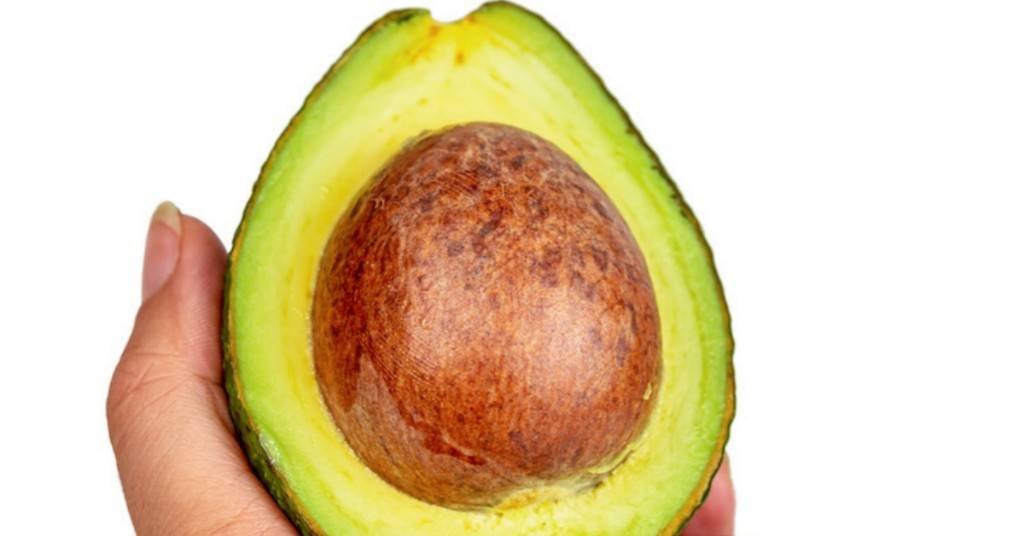
Table of Contents
The total number of calories contained in an avocado depends on the size or variety. According to the US Department of Agriculture, half of an avocado weighing 100g contains about 160 calories based on a 200g avocado. Some avocados like the Florida variety weigh 300g+ and 1/2 of those contain about 182 calories.
One calorie is the amount of energy required to increase the temperature of 1g of water by 1 degree Celsius.1 Research gate (scholarly article) visit source With regards to diets, calories are a measure of the amount of energy a food or drink can provide to your body. Your body’s energy needs depend on factors like your:
- Age,
- Level of activity,
- State of Health,
- Body size,
- Height,
- And sex.
Males require more calories than females. In either sex, the older one gets the fewer calories that’ll be needed and the taller or bigger one is, the more calories that’ll be required daily.2 National health service. (governmental authority) visit source [/mfn
][Research gate (scholarly source) visit source What this means is that your consumption of avocados should be guided by these factors as well since the fruit is dense with calories so much so that half of it could give you well over a hundred calories.
Calories in half an avocado small size.
This varies greatly but half an avocado that is considered small in size is expected to contain below 117 calories. For these avocados, the serving size should be about a 3rd of the fruit. Being small, however, does not mean being less nutritious as they contain just the same nutrients that can be found in an avocado.
The difference is that you will have to eat more of a small-sized avocado to derive the same level of satisfaction you will get by eating a smaller amount of a bigger avocado.
Sign up for our newsletter:
Calories in half an avocado medium size.
Calories in half of the medium-sized avocados also vary widely but are typically about 160 calories. Most avocados are medium in size and a serving is usually about a fifth of the entire fruit.
Serving sizes usually lie between a 5th of medium-sized fruits to a 3rd of avocado fruit. Eating half to a whole avocado fruit daily is healthy and provides its full benefits.
The calories for half avocado vs. calories of serving size.
Though it is recommended for the serving size of an avocado to be about 50g, the exact amount of the fruit you need to derive satisfaction, otherwise known as portion size, varies among individuals. You may prefer to eat one 1/2 of an avocado per sitting which is quite fine and eating a whole fruit daily could still be ok for a lot of people.
If your portion size is half an avocado, eating the fruit twice daily will give you all the calories packed in one whole fruit.
Since avocados are loaded with calories, the amount of it you eat at once or in one sitting should be guided by how frequently you eat them and your health goals. The more frequently you reach out for the fruit in a day, the more you may want to shift from eating what gives you satisfaction to eating serving sizes.
With serving sizes, you could eat the fruit more frequently daily to consume up to a whole avocado fruit unlike eating half of it in one sitting. When your avocado consumption is guided by serving sizes, it’ll be easier to moderate your calorie intake Share on X than when you choose to eat for satisfaction at all times.
Nutrition facts for half an avocado.
Below is a table of the nutrients contained in half an avocado weighing 100g according to the US Department of Agriculture.
|
Nutrient |
Amount |
Unit |
|---|---|---|
|
Water |
73.2 |
g |
|
Energy |
160 |
kcal |
|
Protein |
2 |
g |
|
Total lipid or fat |
14.7 |
g |
|
Ash |
1.58 |
g |
|
Carbohydrates |
8.53 |
g |
|
Total dietary fibers |
6.7 |
g |
|
Total sugars including NLEA |
0.66 |
g |
|
Calcium |
12 |
mg |
|
Iron |
0.55 |
mg |
|
Magnesium |
29 |
mg |
|
Phosphorus |
52 |
mg |
|
Potassium |
485 |
mg |
|
Sodium |
7 |
mg |
|
Zinc |
0.64 |
mg |
|
Copper |
0.19 |
mg |
|
Manganese |
0.14 |
mg |
|
Selenium |
0.4 |
µg |
|
Fluoride |
7 |
µg |
|
Vitamin C |
10 |
mg |
|
Thiamin |
0.07 |
mg |
|
Riboflavin |
0.13 |
mg |
|
Niacin |
1.74 |
mg |
|
Pantothenic acid |
1.39 |
mg |
|
Vitamin B-6 |
0.26 |
mg |
|
Total folate |
81 |
µg |
|
Total choline |
14.2 |
mg |
|
Betaine |
0.7 |
mg |
|
Vitamin A, RAE |
7 |
µg |
|
Total carotene (beta + alpha) |
86 |
µg |
|
Cryptoxanthin, beta |
28 |
µg |
|
Vitamin A, IU |
146 |
IU |
|
Lutein + Zeaxanthin |
271 |
µg |
|
Vitamin E |
2.07 |
mg |
|
Total tocopherol |
0.4 |
mg |
|
Tocotrienol, alpha |
0.01 |
mg |
|
Vitamin k |
21 |
µg |
|
Total saturated fatty acids |
2.13 |
g |
|
Total monounsaturated fatty acids |
9.8 |
g |
|
Total polyunsaturated fatty acids |
1.82 |
g |
|
Stigmasterol |
2 |
mg |
|
Campesterol |
5 |
mg |
|
Beta-sitosterol |
76 |
mg |
|
Source: The US Dept. of Agriculture. |
||
Avocados that weigh about 200g of which the half fruit weighs 100g are usually medium-sized. This describes most of the Hass variety of avocado fruit. Larger avocados like the Florida variety weigh much more and will contain more amount of nutrients per unit size than medium avocados.
Impact of half avocado calories on your health.
As stated earlier, a 1/2 avocado offers you a total of 160 calories which represents approximately 8% of your daily requirement based on a 2,000-calorie diet. Though avocados are known as calorie-loaded fruits, the amount of calories you get by eating half of the medium-sized fruit isn’t something that should discourage you from enjoying it in addition to its numerous health benefits.
Furthermore, it is rich in dietary fibers that keep you feeling full and less likely to eat more calories from other nutrient sources. So, in as much as it is a calorie-dense fruit, its fiber also assists you in reducing your overall calorie intake by making you feel less hungry.
Another positive side of half avocado calories is that most of them come from fats rather than carbs. It’s low in carbs. This makes it ideal for people with diabetes. By enjoying all the health benefits of avocados, diabetics get a reasonably good supply of calories to keep them going without the risk of high blood sugar levels or spikes.
In summary, the calories contained in half avocados are typical of what moderate consumption of avocados represents. Share on XHow many calories should you eat or burn a day?
The number of calories is determined by several factors. Since calories are more often associated with body weight, I’ll discuss it based on your body fitness goals.
Though, the recommended daily calorie consumption for males is about 2,500 calories while that for females is 2,000 calories3 National Health Service. (governmental authority) visit source , the exact figure for each individual will depend on factors like:
- Age,
- Level of activity,
- Lifestyle,
- Body size,
- Height, etc.
Weight maintenance.
The challenge is first determining your unique daily caloric needs which of course will be determined by the factors listed earlier. Supposing yours is about 2,300 calories and your goal is weight maintenance, all you need to do is stick to a daily caloric intake that revolves around 2,300 calories.
Weight loss.
If you are fat, obese, or overweight, you simply have to do a little dieting to ensure you consume less than 2,300 calories daily. You’ll like to combine that with physical exercises like burpees or activities that get you to burn even more calories. What the exercise does is raise your daily caloric requirement for weight maintenance further such that there is a net increase in the gap between your intake and daily needs.
For instance, if by dieting you are taking in about 1,900 calories per day, that represents a 400-calorie deficit (2,300 – 1,900) daily. So you do be losing 400 cal daily simply by dieting. Exercise could increase what would’ve been your daily caloric need from what it used to be (2,300cal) to let’s say about 2,700 calories.
What that represents is an increase in your daily caloric deficit from 400 calories to 800 calories (2,700 cal – 1,900 cal). In a week you lose about 5,600 calories. Your weight will start dropping in line with your daily caloric deficit. The more calories you burn via exercises in combination with reduced caloric intake, the more weight you’ll drop, however, weight drop should be a gradual process.
Weight gain.
It is so much easier to gain weight than to lose it. Weight gain can be a pleasurable and stress-free process since it involves eating to your heart’s content. All you need do is consume more calories than your body needs and the surplus will keep getting deposited in your body for future use.
Being less active during the period will have the reverse effect of exercise such that your daily caloric need drops even further. This will inadvertently result in more surplus calories that need storage. As little as 60 calories daily could result in a weight gain of 2.7kg in a year Share on X.4 Extra calories cause weight gain but by how much? (scholarly source) visit source
I don’t suppose diabetics will be looking forward to gaining weight. Still, if for any reason that becomes a goal, avocados could easily boost your caloric intake with minimal effect on your blood sugar since they are low on carbs.
These caloric restrictions above or below your daily requirement are thought to prolong life5 Medical hypotheses. (scholarly source) visit source however, you are not advised to deprive yourself of more than 1,000 calories of your daily intake as it’s unhealthy.




























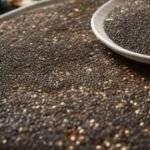

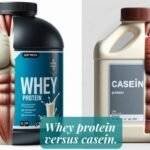








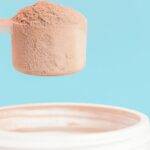


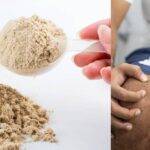












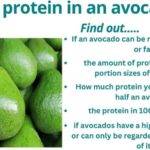

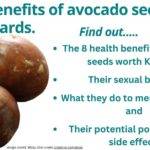


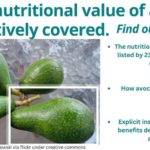
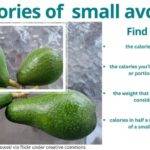
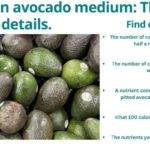
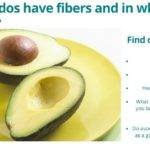
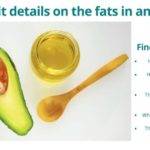

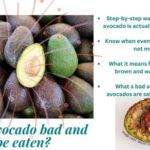












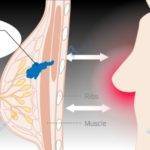
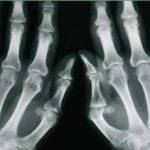










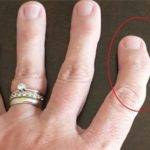





















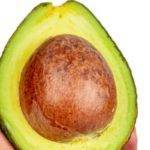











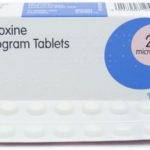


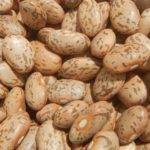
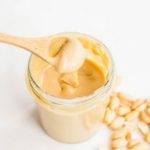








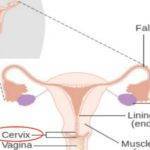

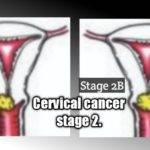
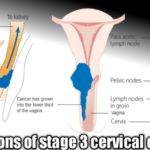

















I really like your writing style, good info, thank you for posting :D.
fantastic. I’d rate it 10/10.
I see something genuinely special in this website.